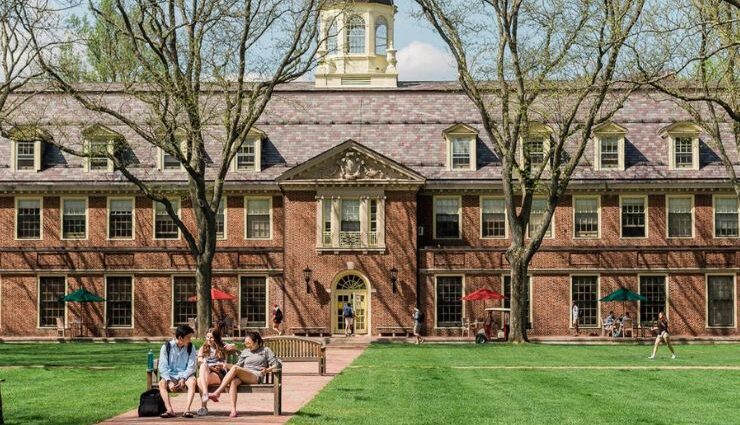10/30/2019 by Liam Gluck |
Landing the Job
Why Teaching Fellowships Rock

I can still remember my initial Skype conversation with Jeff Scanlon, head of summer programs and chair of the English department at The Loomis Chaffee School. I was hiding out in a meeting room in my giant-corporation-technology-subsidiary office — a place that seemed almost entirely devoid of passion, cohesiveness, and buy-in. Mr. Scanlon and I talked about American music and music history for 45 minutes. As a 22-year-old who was nostalgic for college, I couldn’t help but grin as Mr. Scanlon described the summer teaching position. I felt relieved that I’d be turning toward things that I loved: music, academic settings, and working with young people. When I explained the transition to the HR director at my current job and played her some of my recorded music, she said, “Oh yeah, you have to go do this. Get out of here!”
As a teaching fellow at Loomis Chaffee’s Summer Program, I got to design and deliver my own course in American music history to about a dozen seventh graders. As we grew more comfortable with each other, lessons turned into discussions. We wandered from Kanye West albums to K-Pop artists, to blues scales, to Revolutionary War chronology, the use of racial slurs, imperialism, religion, thoughts on their parents’ music, and their parents’ thoughts on theirs (mutual distaste). Music and lyrics intersected with culture, faith, history, geography, and race. It was wonderful to witness moments of discovery and understanding.
It was also genuinely fun to interact with young people all day! Flag football games, trips to Six Flags, and an end-of-program talent show made for some awesome memories for the students. I was surprisingly sentimental at the end of the summer, and was excited to teach full-time at a school in Fort Worth, Texas — something my fellowship definitely helped me secure. Not to mention I felt more confident in my teaching abilities and ready to develop my craft more deeply in a classroom setting.
Teaching is the most exhausting job I’ve held to date, but also the most enjoyable. I still remember moments and conversations with some of the kids I taught. The profession affords creativity in lesson-planning, mentoring and connecting with young people, and a rich community in independent school life. I will always look back on my fellowship fondly and I highly recommend the work to anyone.
Teaching fellowships or internships are summer opportunities for college students (usually juniors, seniors, or recent grads, but sometimes underclassmen) to gain valuable teaching experience before graduation. Typically students are employed to work in a school's summer camp or program and serve as teachers, co-teachers, coaches, dorm supervisors, and in other capacities. The age range of children that fellows or interns teach can vary from middle to high school age and sometimes younger. Interns or fellows are generally compensated and may also live on campus during the summer. If this sounds like an opportunity you are interested in exploring, apply to gain access to CS&A's Intern Portal where you can browse opportunities at schools and campus across the country.
Liam Gluck was a Placement Associate with CS&A specializing in music, guidance counseling, and learning services job placement. He taught at Loomis Chaffee’s Summer Program in the summer of 2013, where he designed his own course on social history and music in the United States. He then moved to Fort Worth, Texas, where he taught jazz/rock band, piano, and drumline at All Saints’ Episcopal School, and also directed the pit band for a high school musical production.
Leave a Comment
0 Comments
There are no comments on this blog entry.